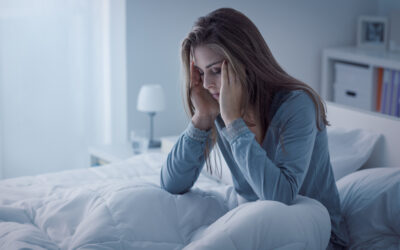Got Toxic Overload? Here’s What You Need to Know.
Have you ever wondered how toxic you are? Or how many toxins are you exposed to daily or even that you have been exposed to during your lifetime? Well, we are all exposed to toxins and possess a “body burden.” So here’s a simple equation I like to use to evaluate just that:
Body Burden = Toxic Exposure – Detox Capacity
Our body burden is the accumulated amount of heavy metals and chemicals in our system. This is determined by looking at our level of exposure to those toxins and assessing how effectively our bodies can process them.
Why should you care?
Everyone is toxic to some degree. Most people carry around 300-700 toxins on average. What’s more astonishing is that babies can carry up to 40-70 measurable toxins at birth. You’d think the opposite would be true because they’re getting a fresh start in life. Crazy, I know!
Now, if you’re thinking the worst right now, don’t. The fact is that toxins are an inevitable part of life, so it’s impossible to get rid of them altogether.
Toxins will always be present. What’s important is that we become aware of the kinds of toxins out there, how they affect our system, and what we can do to minimize our exposure to them. It is also important to strengthen our detoxification system to help combat them!
The toxic effects of toxins
There are several ways toxins impact you negatively. First, toxins can act as endocrine disruptors. These toxins look like hormones (i.e., xenoestrogens) that bind to hormone sites and disrupt hormonal balance.
Secondly, toxins can be neurotoxins. These toxins can directly damage brain cells and alter how brain chemicals are processed, leading to lower brain chemicals and symptoms such as depression, anxiety, and/or brain fog. Finally, toxins can also damage the mitochondria, resulting in low energy and many chronic diseases.
Where are these toxins coming from?
Toxins are simply everywhere. From the air we breathe to the water we drink, they are present in almost everything. Here are some of the top categories I look at when assessing toxic overload:
- Breathing polluted air
- Drinking chlorinated water
- Eating food sprayed with pesticides
- Application of beauty care products
- Plastics
- Endotoxin from gut bacteria
- Free radicals
How do our bodies get rid of them?
When it comes to detoxing, our bodies are pretty spectacular at doing it. That’s why we shouldn’t take our detoxification system for granted and expect that it will always have our back. Instead, we need to nourish and support it daily in the best way we can so it can effectively do its job. The 3 primary ways we get rid of toxins is through:
- Stool
- Urine
- Sweat
Toxins are stored in our body fat. So, when we lose weight, we release many toxins through that process. That’s why it’s essential to continuously flush the body by consuming lots of water and making sure our bowels are moving regularly.
What can you do about toxins?
I like to help my patients approach body burden in 3 ways:
Step 1: Become informed about the contaminated areas in their lifestyle. As I keep mentioning, toxins are everywhere. Whether it’s the air we breathe, the water we drink, the products we apply to our face, or the food we eat, almost anything can have an impact, whether that’s big or small.
Step 2: I like to inform patients on how they can decrease exposure through simple lifestyle modifications. You’d be surprised by how much a difference this can make over time. For example, I may recommend switching to an organic-based diet, drinking filter H20, or switching out a beauty product for a less toxic one.
The point here is to take baby steps to minimize exposure. You don’t have to do a complete overhaul of your life to get rid of them; now, that’ll just stress you out, and we don’t want that!
Instead, take small steps by choosing a category that’s easiest for you to tackle. For example, some people find that focusing on personal care products is a good start when making these changes. Then, after you’ve improved that area, move on to the next.
Step 3: Last but not least, I like to emphasize to patients the importance of staying optimally healthy so that our bodies can function correctly.
When it comes to detoxification, it’s critical to support our body to improve its ability to detox. That means getting the appropriate amount of essential vitamins, minerals, and detoxification precursors, whether through a nourishing diet or personalized supplementation (best done under the supervision of a health professional).
A Final Word on Toxins
In general, it isn’t always necessary to determine what toxins you have precisely because the truth is we all have them. Instead, it is helpful as a first critical step to make small changes where you can.
Remember, small daily consistent actions build up over time to create huge results.




